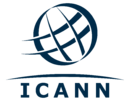Main Page: Difference between revisions
Weekly Article - RrSG |
Article of the week - GNSO |
||
| Line 21: | Line 21: | ||
<br /><div style="color: #FFF; background-color: #0d8323; padding: 5px 10px; border: 1px solid #466f81;"><big>Article of the Week</big></div><div style="padding: 10px;"> | <br /><div style="color: #FFF; background-color: #0d8323; padding: 5px 10px; border: 1px solid #466f81;"><big>Article of the Week</big></div><div style="padding: 10px;"> | ||
<big><b>[[ | <big><b>[[Generic Names Supporting Organization]]</b></big> | ||
<br /> | <br /> | ||
The | The Generic Names Supporting Organization (GNSO) brings together smaller stakeholder groups, which in turn bring together constituencies and other groups, together into one [[Supporting Organizations|Supporting Organization]] to develop policies, form consensus, and make recommendations related to [[gTLD]]s to the [[ICANN Board]]. This body was previously known as the [[Domain Name Supporting Organization]] (DNSO), which it replaced in 2003. The main objective of the GNSO is to keep gTLDs operating in a fair and orderly manner across the Internet, while promoting innovation and competition. | ||
<strong>([[ | |||
<div style="float:right;"><small><strong>Related: [[ | <strong>([[GNSO|Read the full article...]])</strong> | ||
<div style="float:right;"><small><strong>Related: [[Supporting Organizations]] - [[gTLD]] - [[Stakeholder Groups]]</strong></small></div><div style="clear: left;"></div></div> | |||
<br /><div style="color: #FFF; background-color: #466f81; padding: 5px 10px; border: 1px solid #0d8323;"><big>Latest Feature</big></div><div style="padding: 10px;"> | <br /><div style="color: #FFF; background-color: #466f81; padding: 5px 10px; border: 1px solid #0d8323;"><big>Latest Feature</big></div><div style="padding: 10px;"> | ||
Revision as of 23:30, 17 March 2014
ICANNWiki Info Sheet
Many thanks to our sponsors for all of their continued support!
Generic Names Supporting Organization
The Generic Names Supporting Organization (GNSO) brings together smaller stakeholder groups, which in turn bring together constituencies and other groups, together into one Supporting Organization to develop policies, form consensus, and make recommendations related to gTLDs to the ICANN Board. This body was previously known as the Domain Name Supporting Organization (DNSO), which it replaced in 2003. The main objective of the GNSO is to keep gTLDs operating in a fair and orderly manner across the Internet, while promoting innovation and competition.
Name Collision
A Name Collision describes the circumstance in which a term attempting to reach a private Domain Name results in resolving to a public Domain Name unintentionally. Private domain names are used in Intranets and in many corporations and organizations throughout the world. A domain name on a private network that matches a name in the public Internet can create security risks, confusion, and systems failure. Although the Name Collision issue is not new, a renewed interest in the issue came about in 2013 as ICANN's New gTLD Program was preparing to delegate hundreds of new domain names to the Root Zone. The topic was debated fiercely within the ICANN community when a report by Interisle Consulting was prepared for and released by ICANN.
(Read the full article...)
- gTLD Auctions
- Closed gTLDs
- Sort All TLDs by Priority
- 了解ICANN 和 新gTLDs计划
(Chinese micro-site)








